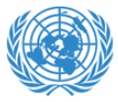International Day of Persons with Disabilities
December 03, 2017 | Organized by: The United Nations
The annual observance of the International Day of Disabled Persons was proclaimed in 1992, by the United Nations General Assembly resolution 47/3. It aims to promote the rights and well-being of persons with disabilities in all spheres of society and development, and to increase awareness of the situation of persons with disabilities in every aspect of political, social, economic and cultural life.
2017 Theme: “Transformation towards sustainable and resilient society for all”
The 2030 Agenda pledges to “leave no one behind”. Persons with disabilities, as both beneficiaries and agents of change, can fast track the process towards inclusive and sustainable development and promote resilient society for all, including in the context of disaster risk reduction and humanitarian action, and urban development. Governments, persons with disabilities and their representative organizations, academic institutions and the private sector need to work as a “team” to achieve the Sustainable Development Goals (SDGs).
About IDPD
The International Day of Persons with Disabilities (IDPD or IDPwD) was established in 1992 by the United Nations (UN) General Assembly to increase understanding and awareness of disability issues and the abilities of people with disabilities; promote the full and effective participation in society for the dignity, rights and well-being of people with disabilities; and celebrate the achievements and contributions of people with disabilities. It is observed worldwide on December 3 each year.
Over one billion people, or approximately 15 percent of the world's population, live with some form of disability and face barriers to inclusion in many key aspects of society.
Around the world, physical, social, economic and attitudinal barriers prevent people with disabilities face from participating fully and effectively as equal members of society. They are disproportionately represented among the world's poorest individuals. People with disabilities lack equal access to basic resources, such as education, employment, healthcare and social and legal support systems. They also have a higher rate of mortality. Yet disability as a whole has remained largely invisible in the mainstream development agenda and its processes.
What can you do to celebrate IDPD?
INCLUDE: Observance of the day provides opportunities for participation by all stakeholders - governments, the United Nations system, civil society, and organizations of persons with disabilities - to focus on issues related to the inclusion of persons with disabilities in development, both as beneficiaries and agents.
ORGANIZE: Hold forums, discussions and information campaigns in support of the theme to find innovative ways and means by which persons with disabilities can play a lead role including the arrangements of special programs and licensing mechanism.
CELEBRATE: Plan or participate in public events to show the contributions made by people with disabilities as agents of change and development in the communities in which they live.
TAKE ACTION: A major focus of the Day is practical action to mainstream disability in all aspects of development, as well as to further the participation of persons with disabilities in social life and development on the basis of equality. Highlight progress and obstacles in implementing policies that facilitate the full participation of people with disabilities, as well as promote public awareness of barriers to the full inclusion of persons with disabilities in their societies.

